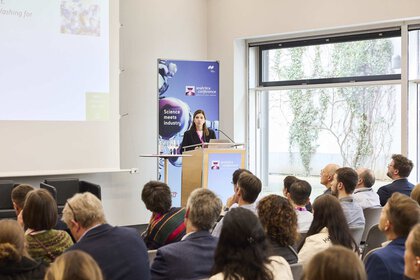Opening hours

Experience unique insights into current research and practice—diverse and user-oriented. Anticipate the analytica conference, numerous forums, special exhibitions, and focus days. Find detailed programs on respective pages.
Science meets Industry: The latest scientific results and trends are discussed here. Join us and meet top-class international speakers and renowned experts.

Users present current applications and marketable product innovations from the world of laboratory and analytics in the forums. Explore practical focus days such as Job Day and Finance Day.

In addition to the analytica conference, forums, and focus days, analytica offers a broad framework program with special exhibitions and events: Digital Transformation, Live Lab, Continuing Education & Training.

Opening hours

Travel & Journey

Accommodation

On-site services

Hall plans

FAQ
